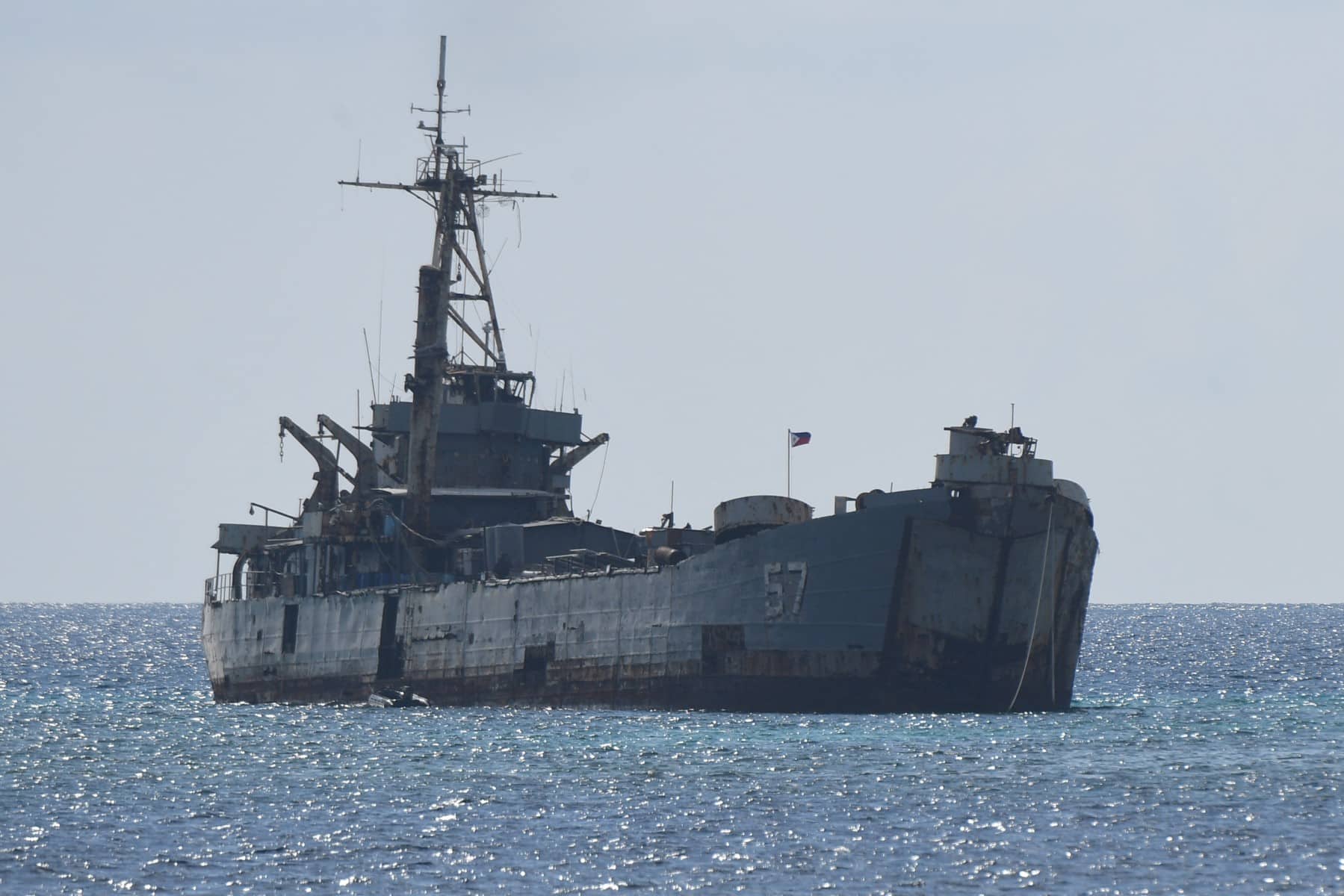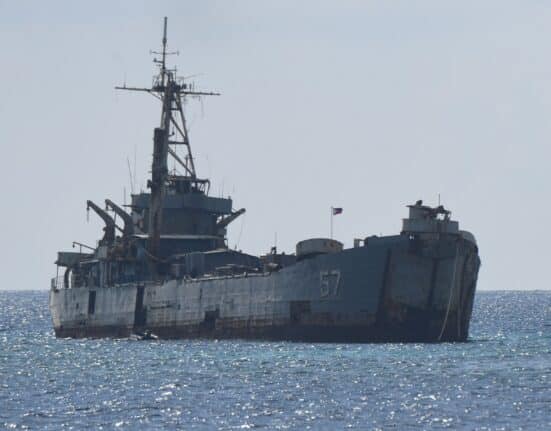The Philippines said a resupply mission had reached a remote outpost in the disputed South China Sea Tuesday, despite attempts by Chinese vessels to “block” the boats carrying provisions for Filipino marines.
China claims almost the entire waterway, through which trillions of dollars in trade pass annually, and has ignored an international ruling that its assertion has no legal basis.
As Philippine Navy ships kept watch, two coast guard vessels escorted two supply boats to Ayungin (Second Thomas) Shoal in the Spratly Islands, where a handful of troops are stationed on a crumbling warship.
They arrived just over two weeks after China Coast Guard ships blocked and fired water cannon at a similar resupply mission to the tiny garrison that prevented one of the boats from delivering its cargo.
“The routine follow-on Rotation and Resupply mission to the BRP Sierra Madre was successfully conducted today,” said the National Task Force for the West Philippine Sea, which includes government agency representatives.
The task force accused China Coast Guard and “Chinese Maritime Militia” vessels of attempting to “block, harass, and interfere” with the mission.
“Routine missions to Philippine outposts on various features in the West Philippine Sea will continue on a regular basis,” said the task force, referring to the part of the South China Sea that Manila claims.
China Coast Guard spokesperson Liu Dejun said the Philippine vessels “arbitrarily” entered the waters around the Second Thomas Shoal “without the permission of the Chinese government”.
But, Liu said, the coast guard decided to allow the boats to deliver supplies on humanitarian grounds “in view of the fact the Philippine vessels did not carry illegal building materials for large-scale reinforcements”.
China deploys hundreds of vessels to patrol the South China Sea and swarm reefs.
Its coast guard and navy ships routinely block or shadow Philippine boats in the contested waters, Manila has said.
Code of conduct
The outpost was resupplied on the same day that China and the Association of Southeast Asian Nations, which includes the Philippines, resumed talks in Manila on a code of conduct in the South China Sea in the 40th meeting of a joint working group.
“We are negotiating a Code of Conduct precisely because we would like to prevent incidents such as the last one at the Ayungin Shoal from happening,” Philippine foreign ministry spokeswoman Maria Teresita Daza said, using the Filipino name for Second Thomas Shoal.
The Philippines, a longtime US ally, has outposts on nine reefs and islands in the Spratlys, including Second Thomas Shoal.
The Philippine Navy deliberately grounded the World War II-era BRP Sierra Madre on the shoal in 1999 to check China’s advance in the waters.
The troops stationed on the rusty ship depend on regular deliveries for their survival.
Second Thomas Shoal is about 200 kilometres (124 miles) from the western Philippine island of Palawan, and more than 1,000 kilometres from China’s nearest major landmass, Hainan island.
The use of water cannon on August 5 drew condemnations from the United States and other Western governments and fanned tensions between Manila and Beijing, which have a long history of maritime disputes in the South China Sea.
Beijing has defended its actions in the August 5 incident as “professional”, and accused Manila of “illegal delivery of construction materials” to the grounded ship.
The Philippines has insisted that Second Thomas Shoal is within its exclusive economic zone, and therefore its efforts to resupply troops and repair the BRP Sierra Madre are legitimate.
Philippine military spokesman Colonel Medel Aguilar said Tuesday’s mission “demonstrated to the whole world the Filipinos’ firm resolve to assert our sovereign rights and jurisdiction over the shoal which is within the country’s maritime zones”.









